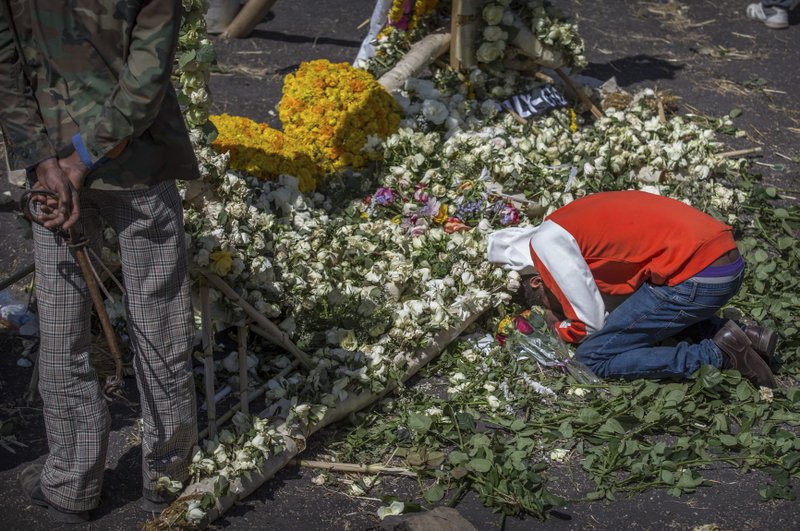HEJERE, Ethiopia -- Analysis of the flight recorders of the crashed Ethiopian Airlines plane has begun, the airline said Friday, and The New York Times reported that the pilot requested permission "in a panicky voice" to return shortly after takeoff as the plane dipped up and down and appeared to gain startling speed.
President Donald Trump in a phone call with Ethiopian Prime Minister Abiy Ahmed praised the state-owned airline "as a strong institution" and affirmed U.S. support after Sunday's plane crash killed 157 people, Abiy's office said.
Forensic DNA work began in identifying remains, and Muslim families held prayers for the dead, anxious to have something to bury as soon as possible. The dead came from 35 countries.
The Times report cited "a person who reviewed air traffic communications" from the flight as saying controllers noticed the plane was moving up and down by hundreds of feet.
An airline spokesman has said the pilot was given permission to return to the Addis Ababa airport. But the plane crashed minutes later.
French authorities now have the plane's flight data and voice recorders for analysis. They have said it was unclear whether data could be retrieved. An Ethiopian delegation led by its chief accident investigator was in Paris.
The United States and many other countries have grounded the Boeing 737 Max 8 as the U.S.-based company faces the challenge of proving the jets are safe to fly after suspicions that faulty software might have contributed to two crashes that killed 346 people in less than six months.
The Federal Aviation Administration said regulators had new data from satellite-based tracking that showed the movements of Ethiopian Airlines Flight 302 were similar to those of Lion Air Flight 610, which crashed off Indonesia in October, killing 189 people.
Both planes flew with erratic altitude changes that could indicate the pilots struggled to control the aircraft. Both crews tried to return to the airport.
A screw-like device found in the wreckage of the plane that crashed Sunday has provided investigators with an early clue into what happened.
The so-called jackscrew, used to set the trim that raises and lowers the plane's nose, indicates the jet was configured to dive, based on a preliminary review, according to a person familiar with the investigation. The evidence helped persuade U.S. regulators to ground the model, said the person, who requested anonymity to discuss the inquiry.
Boeing said it supports the grounding of its planes as a precautionary step, while reiterating "full confidence" in their safety. Engineers are making changes to the system designed to prevent an aerodynamic stall if sensors detect that the jet's nose is pointed too high and its speed is too slow.
Information for this article was contributed by Isabel DeBre in Jerusalem, Dave Koenig, Tom Krisher, Josphat Kasire and Desmond Tiro of The Associated Press; and by Alan Levin of Bloomberg News.
A Section on 03/16/2019

